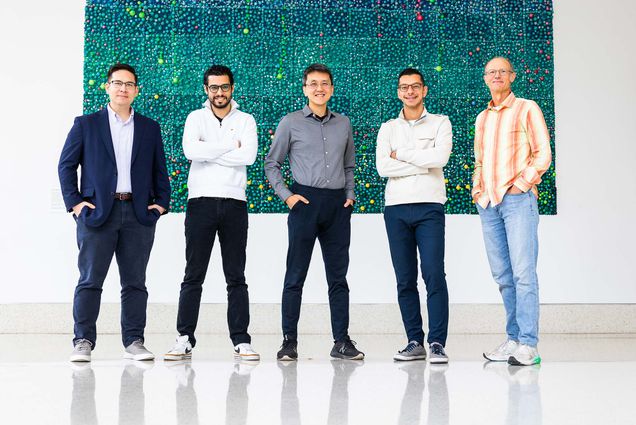NEIDL Researcher Wins a 2024 Kilachand Fund Award

Original article from The Brink by Chuck Leddy, November 13, 2024.
Messenger RNA (or mRNA) vaccines showed their potential as critical virus response tools during the COVID-19 pandemic. But mRNA vaccines come with limitations, including a lack of immediate antiviral immunity and high dosage requirements. Another antivirus tool, antibodies, can provide immediate protection against viral infection (from Ebola, for example), but are limited by slow manufacturing processes and logistical access challenges.
What if we could find a way to bring mRNA vaccines and antibodies together, so each retains their benefits while reducing their limitations? A new Boston University project aims to do just that.
“We’re seeking to mitigate the limitations of mRNA vaccines and antibodies through a single system,” says Florian Douam, a BU Chobanian & Avedisian School of Medicine assistant professor of virology, immunology, and microbiology. “Our project proposes to synergize three technologies recently developed at Boston University: a self-amplifying RNA (saRNA), an automated nanobody screening platform, and computational tools for predicting RNA function. When combined together, these technologies solve the design, manufacturing, and delivery challenges of antibodies.”
The project is one of three to win a 2024 Rajen Kilachand Fund for Integrated Life Sciences & Engineering award. The other two Kilachand Fund award–winning projects this year are pursuing ways to improve neuroimaging of the brain and attack antibiotic resistance.
Read the full story at The Brink.
